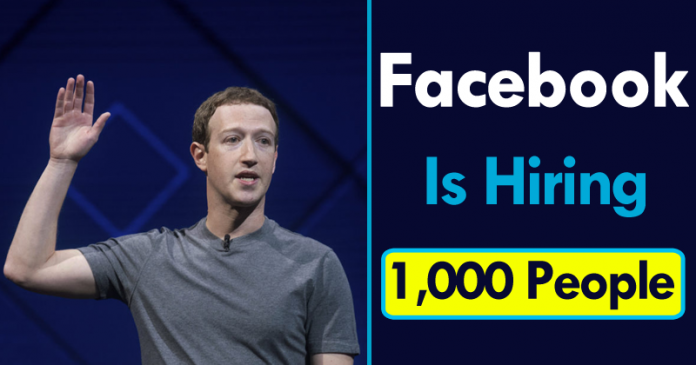An estimated 10 million Americans saw ads on the social network Facebook that was created by Russians trying to make political manipulation. To avoid other problems like this, the social network giant Facebook decided to hire a thousand people to expand the team that reviews paid shady ads.
Facebook got into a mess: an estimated 10 million Americans saw ads on the social network created by Russians trying to make political manipulation. To avoid other problems like this, the social network giant Facebook decided to hire a thousand people to expand the team that reviews paid publications.
Accounts associated with ads are fake, making tracking difficult. But the investigations show that together they have created over 3,000 political ads. Among these, 44% were seen before the United States presidential election in November last year. The remainder (56%) was served later until May of this year.
The ads basically propagated hateful content among the country’s voters addressing sensitive issues such as racism, gun ownership, and immigration. While Russia denies involvement, Facebook claims to have indications that the 3,000 ads were managed through 470 fake accounts, roughly all controlled from the country. More than $ 100,000 would have been spent on these publications.
It’s a fair skirt for Facebook. First, the company has passed over 3,000 ads that violate the established usage policies for the social network. Second, because 10 million people are far from being a despicable amount.
Following the internal investigations, Mark Zuckerberg himself delivered a report on false accounts and announcements to Robert Mueller, a prosecutor who heads the work investigating Russia’s involvement in the presidential election that elected Donald Trump.
The next step was the decision to hire an additional 1,000 people to review the ads. It is unclear whether these officials will work wholly or partially in this activity, nor when will they begin to act. What Facebook tries, for now, is to show that it is addressing the issue with priority.
As a result, the company also committed to more restrictive ad policies and even more machine learning to increase the effectiveness of algorithms that detect banned ads.
It sounds like that kind of empty promise made just to convey an air of proactivity or cooperation. But it is quite likely that Facebook is serious. So far, social network giant Facebook’s algorithms have been optimized primarily to generate the most revenue possible. The problem of Russian accounts shows, in the worst way, that the issue of security cannot be secondary in these efforts.
In addition to Facebook, Mueller’s team tries to find out how services from companies like the tech giant Google and Twitter were used by Russians in an attempt to influence the United States elections.
Facebook got into a mess: an estimated 10 million Americans saw ads on the social network created by Russians trying to make political manipulation. To avoid other problems like this, the social network giant Facebook decided to hire a thousand people to expand the team that reviews paid publications.
Accounts associated with ads are fake, making tracking difficult. But the investigations show that together they have created over 3,000 political ads. Among these, 44% were seen before the United States presidential election in November last year. The remainder (56%) was served later until May of this year.
The ads basically propagated hateful content among the country’s voters addressing sensitive issues such as racism, gun ownership, and immigration. While Russia denies involvement, Facebook claims to have indications that the 3,000 ads were managed through 470 fake accounts, roughly all controlled from the country. More than $ 100,000 would have been spent on these publications.
It’s a fair skirt for Facebook. First, the company has passed over 3,000 ads that violate the established usage policies for the social network. Second, because 10 million people are far from being a despicable amount.
Following the internal investigations, Mark Zuckerberg himself delivered a report on false accounts and announcements to Robert Mueller, a prosecutor who heads the work investigating Russia’s involvement in the presidential election that elected Donald Trump.
The next step was the decision to hire an additional 1,000 people to review the ads. It is unclear whether these officials will work wholly or partially in this activity, nor when will they begin to act. What Facebook tries, for now, is to show that it is addressing the issue with priority.
As a result, the company also committed to more restrictive ad policies and even more machine learning to increase the effectiveness of algorithms that detect banned ads.
It sounds like that kind of empty promise made just to convey an air of proactivity or cooperation. But it is quite likely that Facebook is serious. So far, social network giant Facebook’s algorithms have been optimized primarily to generate the most revenue possible. The problem of Russian accounts shows, in the worst way, that the issue of security cannot be secondary in these efforts.
In addition to Facebook, Mueller’s team tries to find out how services from companies like the tech giant Google and Twitter were used by Russians in an attempt to influence the United States elections.

